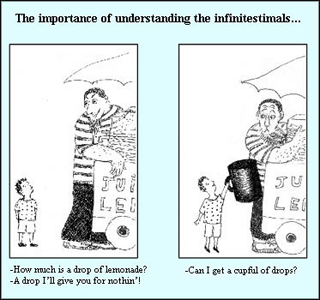

One possible reason for the importance of Euclid for the Jesuits might be the influence of Clavius, given his high regard for Euclid. Whereas there is direct evidence that the Jesuits opposed indivisibles because of their perceived challenge to Eucharistic doctrine, the extent to which the challenge posed by indivisibles to Euclidean-style reasoning in mathematics was significant in this opposition is less clear. a conflict between the method of indivisibles and the Catholic doctrine of the Eucharist’, Sherry ( 2018, p. a true, eternal, and unchallengeable order upon a seemingly chaotic reality’, Alexander ( 2014, p.

One is stated by Alexander as the struggle of the Jesuits to impose ‘. 368), regards as hypothetical the two main views of the reasons behind Jesuit opposition to indivisibles. More general aims of this article are to widen the immediate mathematical and historical contexts in Alexander’s book, to bridge a gap in conversations between mathematics and the humanities, and to relate mathematical ideas to wider human and contemporary issues. Also discussed are wider issues arising from Alexander’s book including: the changes in cultural sensibility associated with the growth of new mathematical and scientific knowledge in the seventeenth century, the changes in language concomitant with these changes, what constitutes valid methods of enquiry in various contexts, and the question of authoritarianism in knowledge. This article discusses aspects of these events with reference to the book Infinitesimal by Amir Alexander and to other sources. Notions of the infinitesimal were used by Isaac Newton and Gottfried Leibniz, and were attacked by Bishop Berkeley for the vagueness of the concept and the illegitimate reasoning applied to it. In England, indivisibles were used by the mathematician John Wallis, and there was an acrimonious and extended feud between Wallis and the philosopher Thomas Hobbes over legitimate methods of argument in mathematics. The teaching of indivisibles was banned within the Society of Jesus, the Jesuits. This cast doubt on the validity of the methods and the reliability of mathematical knowledge which had been regarded as established by the axiomatic method in geometry expounded by Aristotle’s younger contemporary Euclid. In the seventeenth century, Italian mathematicians were using new methods involving the notion of indivisibles, and the paradoxes of the continuum appeared in a new context.

The continuum-that is, the collection of points in a straight line segment, appeared to have paradoxical properties, arising from the ‘indivisibles’ that remain after a process of division has been carried out throughout the continuum. The notion of indivisibles and atoms arose in ancient Greece.


 0 kommentar(er)
0 kommentar(er)
